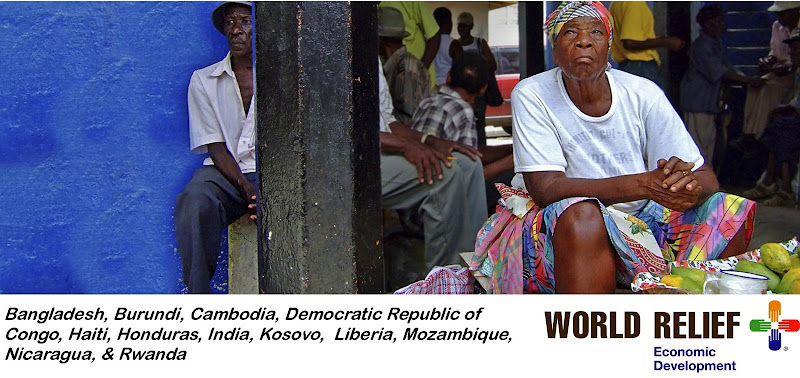During the month of April, thousands of Haitians flooded the streets in Port-au-Prince burning tires, looting stores - all in protest of soaring food prices. In Haiti, food prices have increased as much as 45% in less than two years time. Stability was threatened in Burundi, where attacks by the National Liberation Forces (FNL) continue to jeopardize the recovering nation's peace after the end of a twelve year conflict in 2004 - a conflict that killed more than 300,000. In eastern Democratic Republic of Congo, hundreds of Congolese living in the Rutshuru area of North Kivu fled recently after renewed violence erupted between the government's soldiers and the Democratic Forces for the Liberation of Rwanda rebel group.
In times of economic and political insecurity, microfinance institutions (MFIs) face threats in their ability to serve clients with loans as the pressure on borrowers to repay intensifies and conflict threatens the stability of markets. Clients struggle with managing an income base that becomes increasingly dedicated towards buying food rather than meeting other consumption needs. World Relief's microfinance sector is not new to these challenges. Since 1991, World Relief microfinance institutions have operated in tense environments where economies have been destroyed by civil, national, and global political conflict and economic collapse. Seven of World Relief's microfinance program countries rank in the bottom one third of the countries listed in the United Nation's 2007/2008 Human Development Index.
Today, World Relief's microfinance institutions continue to play a key role in promoting development in the midst of insecurity. World Relief's MFIs are extending outreach to new clients, expanding geographically with new branches in urban and rural areas, and revising and designing new loan products to better adapt to the business demands and realities clients face.
In Haiti, 3,000 women are organized into small credit groups through FEMA - World Relief's microfinance institution operating in Port-au-Prince and Jacmel. In addition to working directly through local markets, FEMA links through local churches and reaches out to beneficiaries of World Relief's Orphan and Vulnerable Children Program, including those who have been affected by the mass HIV/AIDS epidemic in Haiti.
Turame Community Bank (TCB) currently extends financial services to over 11,000 men and women through urban and rural regions of Burundi. Current conflicts in Burundi are exacerbated by generations of ethnic conflict. To respond proactively to the effects of this, community bank groups are being trained in peace and reconciliation curriculum, which emphasizes communication, respect for others, and listening as conflict mitigation strategies. In Turame's Gitega branch and Ruyigi sub-branch, graduates of vocational skills schools, including ex-combatants, are receiving loans through Turame. Soon, these graduates will also be able to access new savings services and asset-based loan products through TCB.
In the North and South Kivu provinces in the Democratic Republic of Congo, Hekima is not only expanding the outreach of the MFI, but is helping two formal microfinance associations to coordinate capacity-building activities and promote best practices to build the entire microfinance sector within the region. In Bukavu, South Kivu, Hekima is reaching vulnerable markets such as the Kadutu market - where women are accessing loans as small as $50. The levels of poverty in this area are amongst the most extreme, as years of inflation and ethnic war completely destroyed the financial sector, including the region's once innovative network of savings and credit cooperatives.
In conflict-affected and economic downtrodden regions of the world, hope in the face of poverty is often difficult to perceive. World Relief's microfinance institutions aim to not only make hope present in the lives of the poor, but to allow hope to thrive through sustainable, transformational change.
Friday, May 16, 2008
Development in the Midst of Insecurity
Subscribe to:
Post Comments (Atom)




No comments:
Post a Comment